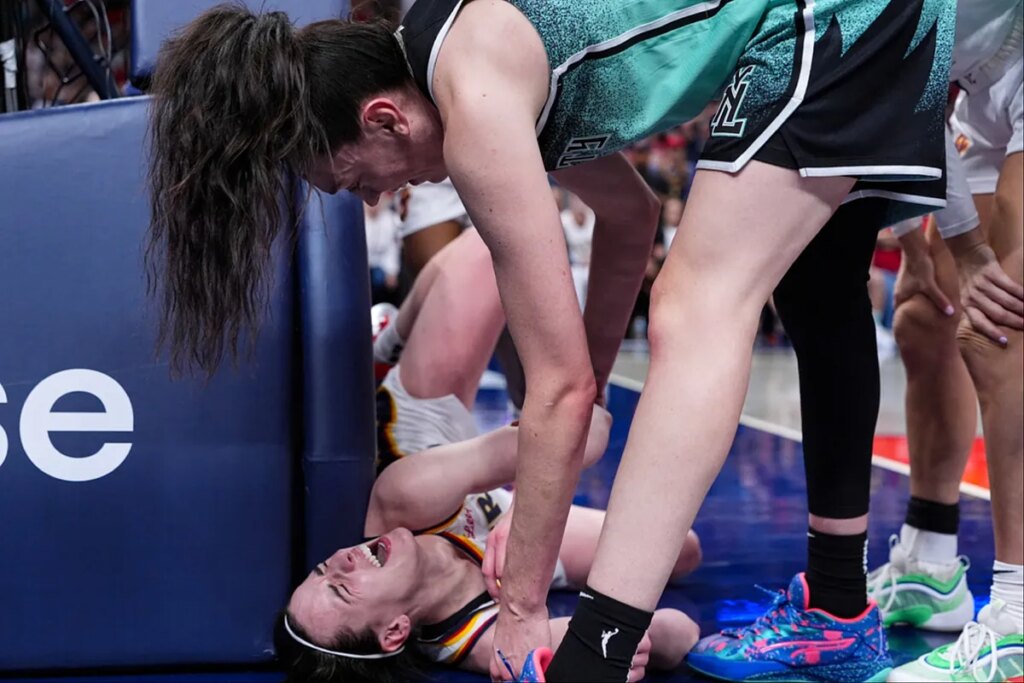As sophomore sensation Caitlin Clark continues to light up arenas and bring unprecedented attention to the women’s game, experts are pleading with the league to wake up and protect its brightest star before it’s too late.
One voice in particular, basketball analyst and former pro Rachel A. DeMita, has taken to her platform to deliver a stark warning: “If the WNBA doesn’t evolve, it risks losing the very fans Caitlin has brought in.”
Clark, who now accounts for a jaw-dropping 26.5% of all WNBA-related revenue, has become the face of a new era in women’s basketball. Her flashy play, long-range shooting, and massive fanbase have redefined what is possible for the league. But with that success has come tension – and increasingly rough treatment on the court.
Despite her star power, Clark has faced repeated hard and flagrant fouls since entering the league. The response? A dismissive shrug. “Embrace the contact” is the common mantra. But as DeMita argues, the glorification of excessive physicality is not only outdated – it’s dangerous.
The WNBA needs fundamental changes
In fact, the rough play has now reportedly led to a long-term injury for the Indiana Fever star, one that fans and analysts alike believe could have been avoided. “Every sport has consistent officiating from youth to pro,” DeMita argued. “Why does women’s basketball get more physical – and less fair – the higher you go?”
She’s not alone in raising eyebrows. Fans tuned in to watch the fluid finesse of players like Kelsey Plum, Sabrina Ionescu, and now Clark – not stop-start brawls and injury timeouts. “This isn’t 1990s streetball,” DeMita said bluntly, “and pretending that it is will only drive fans away.”
What’s more, DeMita calls out a serious inconsistency: college-level officiating is stricter and safer than the pros, making the leap into the WNBA not just difficult but dangerous for rising stars.
The key may be in the NBA
DeMita pointed to the NBA’s evolution as a roadmap – specifically rule changes like the hand-check ban, freedom of movement enforcement, and defensive three-second violations that opened the game up and ushered in a scoring renaissance.
So far, WNBA leadership has stayed silent on whether similar changes are even being considered. But as DeMita warns, ignoring the issue could push the league back into irrelevance. “The marketing problem is solved,” she said. “Now the product has to keep up.”
If the league hopes to turn its current surge in popularity into sustained growth, it may need to rethink its proudest pillar – and prioritize player safety and style over brute force. The clock is ticking, and for Clark, fans, and the future of the WNBA, the stakes couldn’t be higher.
Read the full article here

